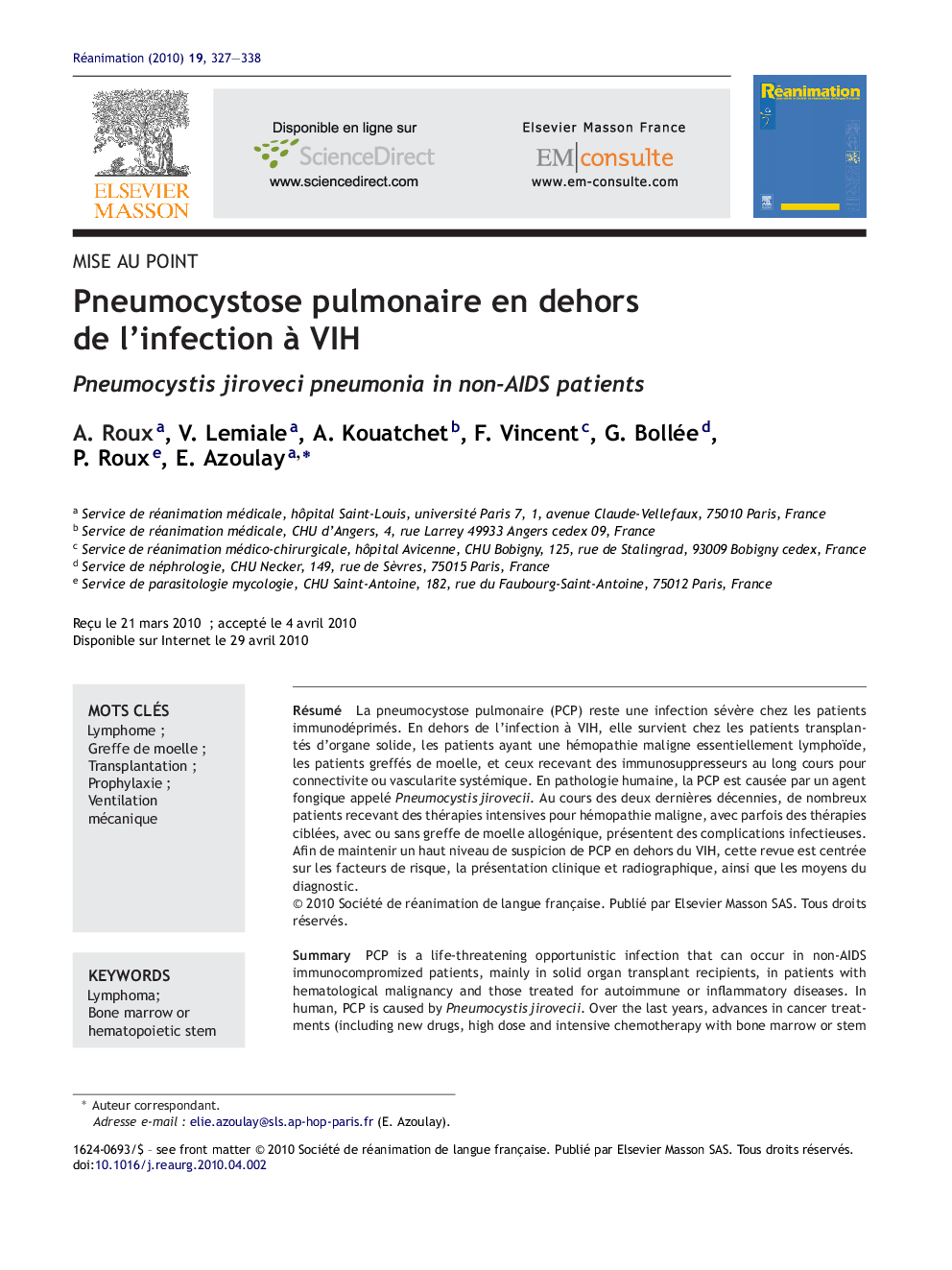| Article ID | Journal | Published Year | Pages | File Type |
|---|---|---|---|---|
| 2612824 | Réanimation | 2010 | 12 Pages |
Abstract
PCP is a life-threatening opportunistic infection that can occur in non-AIDS immunocompromized patients, mainly in solid organ transplant recipients, in patients with hematological malignancy and those treated for autoimmune or inflammatory diseases. In human, PCP is caused by Pneumocystis jirovecii. Over the last years, advances in cancer treatments (including new drugs, high dose and intensive chemotherapy with bone marrow or stem cell transplantation) and immunomodulation resulted in an increased number of patients with impaired immunity and risk for PCP. This review focuses on practical aspects relevant to risk factors, diagnosis and treatment of PCP, in order to provide to clinicians an actual clinical picture of PCP in non-AIDS patients.
Keywords
Related Topics
Health Sciences
Medicine and Dentistry
Emergency Medicine
Authors
A. Roux, V. Lemiale, A. Kouatchet, F. Vincent, G. Bollée, P. Roux, E. Azoulay,
